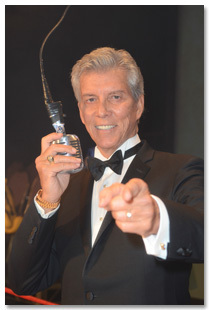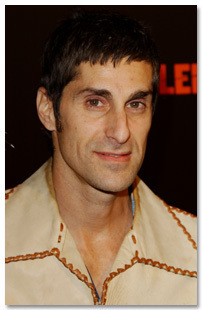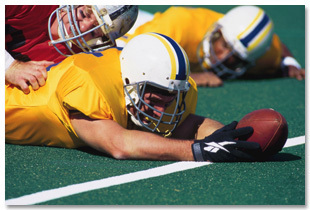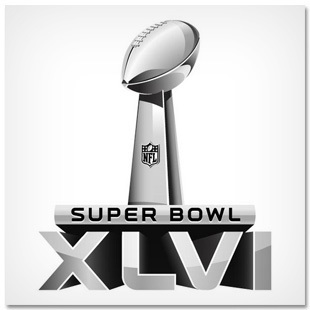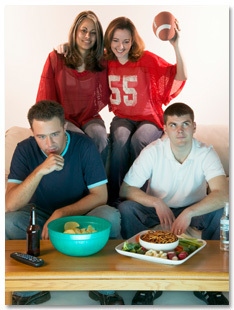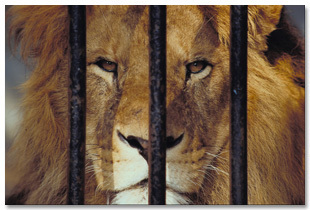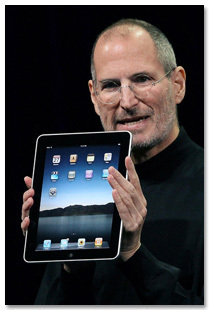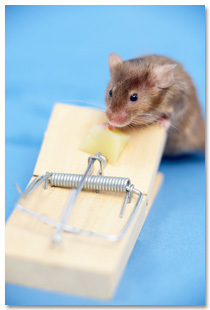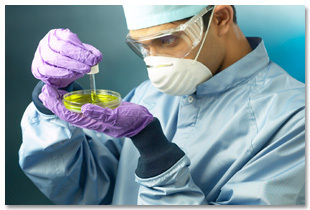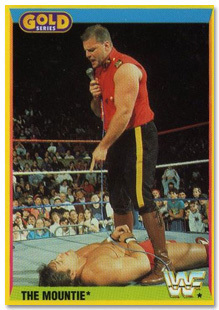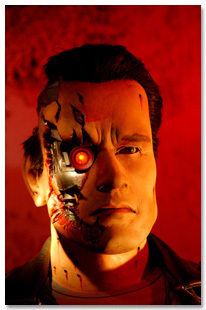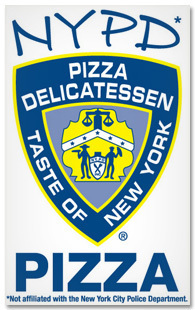'Let's Get Ready to Rumble' Worth $400M
By JOHN BERMANMICHAEL MILBERGER Nov. 9, 2009
When Hollywood producers cast a ring announcer in a boxing scene, they know there's only one man who can properly play the role: Michael Buffer.
Cast in more than 20 movies and television shows, from "Rocky" to "South Park" to the new movie "2012," Buffer, 65, gives the scene an authenticity viewers demand.
His booming voice, dashing good looks and natural charisma demand attention, while his catchphrase 'Let's Get Ready to Rumble,' makes him unforgettable.
VIDEO: Michael Buffers "Lets get ready to rumble" can rouse crowds of thousands. Play
null
Those five words -- 'Let's Get Ready to Rumble' -- have made Buffer the undisputed king of boxing ring announcers and a hugely successful entrepreneur.
By trademarking his catchphrase, Buffer has generated over $400 million in revenue, selling the rights to music, video games, merchandise and while making personal appearances. His business venture is so successful, Buffer doesn't even have to say his catchphrase to make money. He makes more from the trademark than he does announcing in the ring.
nullPlay
null
His catchphrase has brought Buffer more than just fame and fortune. It's also brought him family.
Raised by foster parents in Philadelphia, Buffer was re-united with his biological father and half-brothers in 1989 after his father saw him announcing on television. Buffer's half-brother Bruce is now his business partner and the announcer for the Ultimate Fight Championship (UFC), a mixed martial arts series.
null
SLIDESHOW: 'Ally McBeal': Where Are They Now?
But last year it nearly all came crashing down.
Buffer was diagnosed with throat cancer, the worst kind of disease imaginable for an announcer. His initial diagnosis required aggressive surgery and chemotherapy, which would almost certainly end his announcing career.
Buffer, however, got a reprieve. A second diagnosis called for a less invasive surgery that could potentially save his throat.
The surgery was a success, and today, Buffer is traveling the world again with his great voice and gangbuster trademark.
VIDEO: The dancers gather to raise money for Alzheimers research.Play
null
ABC's John Berman recently sat down with the iconic announcer at his home near Los Angeles to discuss Buffer's legendary career.
Berman: When someone says, 'Michael Buffer, what do you do for a living?,' how do you respond to that?
Buffer: I usually say sports announcer. Not broadcaster, but sports announcer.
Berman: And what does that mean exactly?
Buffer: Well, primarily, of course, boxing ring announcer. But, you know, I've been blessed with -- that being parleyed into doing the introductions for World Series and NBA playoffs and Stanley Cup games and home openers of major sports and colleges. So, you know, I got to introduce a lot of guys.
VIDEO: A look back at the weeks lighter moments.Play
null
Berman: When you were growing up in, in Philadelphia, you said, 'I want to be the world's best-known introducer?'
Buffer: I had no clue that this would ever happen. I would watch the fights with my kids back in the early '80s, and a ring announcer in a fight announced the split decision. And he did it without the proper sequence, to give you the dramatic effect of -- 'and the winner by split decision,' pause, everybody waits and he gave away this -- the winner after two judges. And my oldest son said, 'Dad, you could do that.' And, and I thought, 'Well, yeah, OK. I'm a big fan. I can't afford a ticket, so maybe I could just get my way in to the ring that way.' And I came up with a sort of enhanced resume that said I had experience, and got my foot in the door and was quite terrible the first time. But I got another shot and it just took off, the power of television.
VIDEO: Pop star speaks out about the night her ex- boyfriend Chris Brown attacked her.Play
null
Muhammad Ali Inspired the Catchphrase 'Let's Get Ready to Rumble'
Berman: So you went into this thinking, 'I need to come up with some saying.' You went in saying, 'I've gotta come up with something to get them going?'"
Buffer: Well, I wanted something, and I tried, you know, 'Man your battle stations' and 'Fasten your seat belts.' And it was, like, just crickets out there, you know, nothing was happening. And I came up with -- Muhammad Ali, I'll do my Muhammad Ali impersonation now. [Imitating Ali:] 'I'm so pretty. I'm ready to rumble.' And he used to have this line, 'Rumble, young man, rumble.' So, it was there. It was in boxing. And Sal Marchiano, great sports announcer from New York, used to say on the ESPN fights, 'Well, we're ready to rumble from Resorts International.' And so I kinda fine-tuned everything to, 'Let's get ready to rumble.' And that's what you hear today.
VIDEO: The author of "Act Like a Lady, Think Like a Man" offers relationship advice.Play
null
Berman: Was there a moment where you thought, 'Man, I have something here.'
Buffer: Yeah, you know, and I, of course, I say it a lot differently than I did 20 some years ago.
Berman: How'd you say it in the beginning?
Buffer: I would just say '12 rounds of boxing in the heavyweight division, let's get ready to rumble. Introducing first...' and I would just like roll through it, 'cause I was almost like afraid that I shouldn't be too dramatic with it, like, I didn't want to bring attention to myself. And it was kind of like, just rolling out there, and -- a great friend, he's passed away, Jody Berry, was a singer in show business and a great Hollywood guy, and he said, 'You know, when you say, 'Let's get ready to rumble,' shut up. I'm like, 'What do you mean?' He said, 'Because they're dying to hear you say it, and they want to go crazy.' So, I took a chance and said it and paused, and it started to work a lot better.
VIDEO: Calista Flockhart and the cast reunite and talk about the show.Play
null
Berman: When did you trademark it?
Buffer: I realized that it was popping up everywhere, like for editorial use and headlines, and, you know, for a big fight. It would say, it's time to rumble, ready to rumble. And so, occasionally, a car dealer, a local car dealer would say 'let's get ready to rumble' for knockout deals. And they were, like, using my line. And I checked with attorneys and found out that this could be considered what they call intellectual property.
Berman: And what does that mean for you, exactly?
Buffer: It means I own the phrase, and I have it in the, you know, a half-dozen different countries, and it's something that's with licensing. I've really parleyed into a great way to make a living outside of the ring.
VIDEO: Carrie Underwood and Her MomPlay
null
Berman: So, if I say it, look, I'm just saying it right now, 'let's get ready to rumble,' do I owe you money?
Buffer: Not necessarily, because it's in editorial use right now. You're speaking about it. If you were to make a commercial, or do a magazine ad that says 'let's get ready to rumble' to draw attention to your product, you've stolen my property.
For Buffer, a Cancer Diagnosis a Year Ago: Two Tumors in the Throat
Berman: And then what happens?
Buffer: And then we have a great lawyer that's on retainer, that knows exactly what to do, with letters, and cease and desist, and you'll end up in court, and we have a pretty good batting average, a 1,000, because we're very aggressive, in a sense that you have to be. You can't just sit around and wait for some huge company to use your trademark. You have to always be, show that you value it and that you own it, and that you're willing to fight for it.
Berman: When you talk about this, and you talk about the trademark, and you talk about the life it's given you, you have a, you have a smile, there's a grin that comes across your face, like you're enjoying it, that you get that it's unusual, that it's given you so much. What do you make of the fact that it's given you so much?
Buffer: You know, there's a lot of luck involved in anybody's success. There's a lot of luck involved in getting married to the right woman. Luck involved in having kids that grow up and succeed or be happy. So with this phrase, obviously, a lot of luck has been there. People have been very important to Michael Buffer, and the trademark 'let's get ready to rumble.' Bob Aram with Top Rank, who helped me out, Donald Trump, back in the late '80's, put it in the contract when he had all those big fights that Michael Buffer had to be the ring announcer.
Berman: How did you come up with the voice?
Buffer: The only vocal training I had was playing with a tape recorder as a kid, and you know, doing the beginning of the Lone Ranger show, with a hearty hi-o silver, and just having fun, never really thinking I would be an announcer.
Berman: Did you insure your voice at all?
Buffer: I had had a policy with Lloyds [of London] years ago, and everything was fine, it was pretty expensive, and I figured, well, you know, we're moving along pretty well here, and I I don't think I have to spend that money anymore.
Berman: So, a year ago, you found out you had cancer.
Buffer: Throat cancer. Tonsils, behind my lymph nodes, and in the throat, two tumors.
Berman: So here you are, a guy who makes your living off of your voice, you're told you have throat cancer. What's going through you head, then?
Buffer: What goes through anybody's mind, and you know, millions of families deal with this. You think about the people you love. You become retrospective and everything. And you then realize you have to prepare for, maybe chemotherapy, disfigurement, all of the things that I was told are really a distinct possibility and surgery. I was ready to do it.
After Throat Surgery, First Voice Tryout Words Were 'Ladies and Gentlemen'
Berman: Were you scared that your career was over?
Buffer: Yeah, I actually thought it was over. I was convinced it was over. I was told that I would have to have surgery then, the chemo would affect the gland that gives you saliva. And so therefore, you just have to walk around with a bottle of water all the time and you're speaking would be a lot different. You'd have no power in your voice.
Berman: And so, you went in to this operation, thinking there was a probability, a distinct probability, you would never announce again.
Buffer: Yeah. I was prepared for that, and then fate stepped in, and I ended up with a really fantastic doctor at USC, Dr. Dale Rice, who said, I can take care of this with surgery. And, that's what happened.
Berman: So, you had the surgery, you wake up, then what happens?
Buffer: You wake up in post op, and there's like a curtain around you, and your head clears, you're a little dizzy. And, of course, there was that outside chance that maybe something happened during surgery that they had to be more aggressive. And, the first thing I did was, I wanted to speak, and the only thing I could think of to say, true story, was 'Ladies and gentlemen.' And I heard my own voice, and it was the same voice. I mean, I could feel stitches and swelling and everything else and lots of bandages and things in my arm, but there it was.
Berman: That had to be the the most thrilling 'ladies and gentlemen' of your career.
Buffer: Great feeling. Great feeling.
You can catch Michael Buffer in Las Vegas Nov. 14 where he will be announcing the hotly anticipated Manny Pacquiao vs. Miguel Cotto fight for the World Welterweight Championship.
watch here full
http://abcnews.go.com/GMA/Weekend/lets-ready-rumble-meet-man-catchphrase/story?id=9022704







